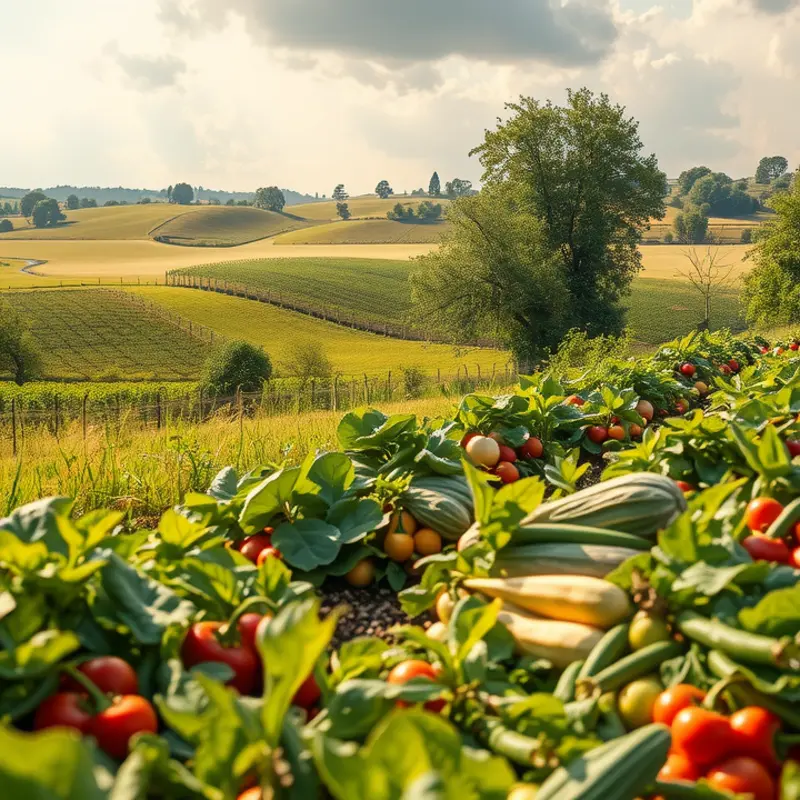Navigating the world of meat consumption can be daunting, especially when striving for eco-conscious choices. As concern for environmental impact grows, individuals are seeking ways to enjoy their diets responsibly. Ethical meat consumption embodies this mission, emphasizing sustainable practices that honor animal welfare, reduce carbon footprints, and promote biodiversity. Understanding this approach can empower you to make informed decisions while enjoying your favorite meals. Embracing ethical meat consumption not only contributes to the health of our planet but fosters a compassionate relationship with food.
Understanding the Environmental Impact of Meat Consumption

The impact of traditional meat production on the environment is profound and far-reaching. Agricultural activities related to meat, particularly beef and lamb, contribute significantly to greenhouse gas emissions. Reports indicate that livestock is responsible for approximately 14.5% of global greenhouse gases. These emissions come from various processes, including the methane released during digestion and nitrous oxide from manure management.
The environmental consequences extend beyond emissions. Deforestation is driven by the need to create pastureland. The Amazon rainforest, often referred to as the lungs of the planet, suffers greatly from these activities. Vast areas are cleared annually, releasing stored carbon dioxide into the atmosphere. This not only accelerates climate change but also disrupts biodiversity.
Water use in traditional meat production is another critical concern. On average, producing one kilogram of beef requires 15,000 liters of water. This immense demand stresses available freshwater resources, contributing to water scarcity in vulnerable regions.
These grim statistics underscore the critical need for sustainable farming practices. Ethical meat consumption can help mitigate these negative impacts. Sustainable agriculture involves practices that are environmentally friendly and socially responsible. Techniques such as rotational grazing, organic farming, and permaculture enhance soil health and reduce erosion.
Relatively new approaches, like agroecology, offer vital solutions. Agroecology promotes biodiversity and minimizes fossil fuel inputs. It improves resilience to climatic changes and ensures agricultural practices adapt sustainably.
Moreover, ethical sourcing begins with knowledge and transparency in the production process. Consumers can support farmers who commit to reducing their carbon footprint. Organizations providing certifications for sustainable meat production help consumers make informed decisions.
The need for awareness and responsibility in our dietary choices cannot be overstated. Reducing meat consumption, choosing plant-based alternatives, or supporting regenerative agriculture are powerful steps forward. These choices contribute significantly to a more equitable food system.
By learning about the origins of what we consume, we can make decisions that align with our values and support a healthier planet. For those interested in reducing environmental impact through diet, exploring easy plant-based eating can be a practical starting point. Concrete actions, informed decisions, and community engagement pave the way towards transforming meat consumption into a force for environmental good.
Practical Steps Towards Ethical Meat Choices

Choosing to consume meat ethically begins with a deeper understanding of how it’s produced and sourced. Opting for local farms often means supporting small-scale operations that prioritize animal welfare and environmental stewardship. Local farms typically have shorter supply chains, reducing the carbon footprint associated with transportation. Visiting nearby farmers’ markets can be a direct way to engage with producers and learn about their practices.
Selecting pasture-raised or regenerative meat options is another impactful step. These methods often involve rotational grazing and integrated crop-livestock systems that help restore soil health, increase biodiversity, and sequester carbon. By choosing meat from such farms, consumers contribute to a cycle that benefits both the land and the animals.
Reducing overall meat intake is a straightforward strategy to lessen environmental impact. Adopting a ‘flexitarian’ approach—where plant-based foods dominate the diet with meat consumed occasionally—can make an enormous difference. Meal planning is key here. Planning meals around vegetables and whole grains, while incorporating modest portions of meat, ensures nutritional adequacy and sustainability.
Exploring alternative protein sources can complement this transition. Legumes, nuts, and seeds provide ample protein and can feature prominently in a varied diet. Incorporating these into meal prep minimizes reliance on animal protein while enhancing dietary diversity. For tips on meal prep and planning, refer to resources like minimal prep dinner ideas, which offer simple yet effective strategies.
Ethical meat consumption also requires awareness and communication. Engaging with local communities and online forums can provide insights and share tips on sustainable eating practices. Being part of such conversations fosters a broader understanding and support network, easing the transition to more eco-friendly habits.
Implementing these practices does not mean compromising on taste or nutrition. On the contrary, they offer an opportunity to discover diverse flavors and culinary traditions. By making informed choices and exploring new protein sources, individuals contribute positively to both personal health and planetary wellness.
Final words
Embracing ethical meat consumption represents a harmonious balance between satisfying appetites and fostering a healthier planet. By understanding the environmental repercussions of traditional meat production and contributing to sustainable practices, every consumer can make a positive impact. Adopt mindful purchasing habits and support ethical farming to pave the way for a brighter food future. With each meal, you have the opportunity to create change—make informed choices that resonate with your values and protect the environment. Let every bite be a step toward sustainability and compassion.








